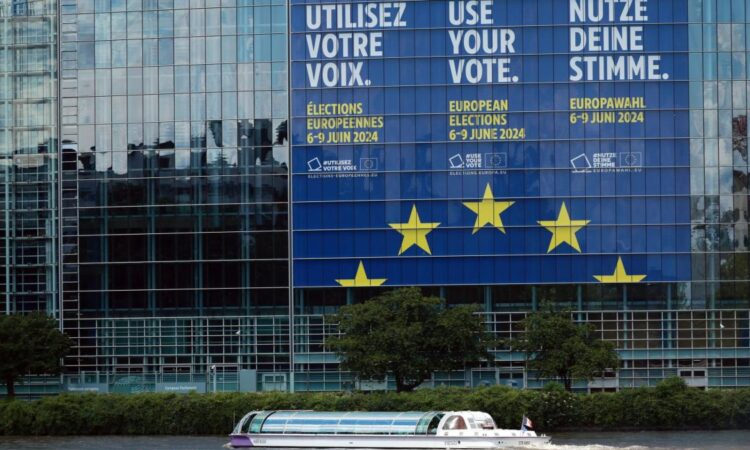
-
Elections for the 700+ member of the European Parliament start today, with results due by June 9.
-
The vote is taking place as the bloc’s crypto rules, MiCA, are set to kick in.
-
The new parliament isn’t seen as demanding changes to MiCA in the immediate future, though it has the power to ask the European Commission for a report on whether changes are needed.
Residents of the 27 European Union countries have begun choosing their representatives in the multinational trading bloc for the next five years.
The election for members of the European Parliament (MEPs) starts today, with results expected on June 9. The more than 700 MEPs shape and decide on new laws, though they cannot initiate legislation and the final decision on adopting a law lies with the Council of the EU.
While the vote comes as the bloc’s landmark Markets in Crypto Assets (MiCA) legislation starts to kick in, the new lawmakers are unlikely to make any immediate changes, said Blockchain for Europe Secretary General Robert Kopitsch. He pointed to current stablecoin rules, set to take effect on June 30, as one example.
The MEPs can call for the European Commission – the EU’s politically independent executive arm responsible for proposing new laws and implementing decisions from the parliament – to propose a report on whether changes are needed.
“Then the Commission can act and change certain provisions in MiCA in consensus with the core legislators, which is the Parliament and the Council,” Kopitsch said last week in Austin, Texas at CoinDesk’s Consensus 2024 conference.
So far the industry has relied on MEP allies like Lídia Pereira from the grouping known as the European People’s Party and Ondřej Kovařík from Renew Europe to push for pro-crypto rules.
“Lídia Pereira was very involved and she’s very young, from Portugal from the center right, and has a very good chance. And if she comes back, I think she’s gonna be a great voice for digital technologies in general, but blockchain especially,” said Tommaso Astazi, head of regulatory affairs at Blockchain for Europe, in Austin.
“I also think Ondřej Kovařík should have a good chance and that will be great because he has been a great ally,” Astazi said, noting that Kovařík, from the Czech Republic, has been very active in forums.
Both Kopitsch and Astazi said they expect to see more MEPs – including younger members – who might be more receptive to new technologies.
Shortly after being elected, the new MEPs help choose the new European Commission. New commissioners are expected to be chosen by October and have their priorities set by the end of the year, Astazi said.
Whether crypto will be a focus in the EU is mostly down to the next set of commissioners, Astazi said.
Read more: Ahead of EU Elections, Crypto Industry Pushes Blockchain Merits as Policy Focus Shifts to AI






